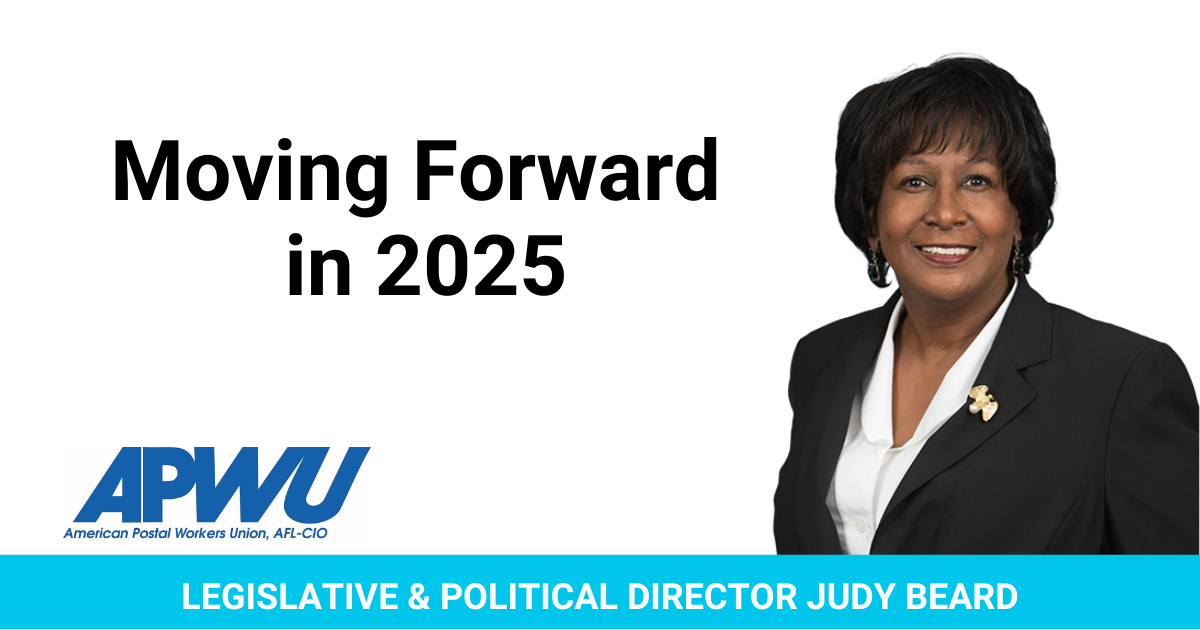January 15, 2025
Leg/Pol Director Judy Beard noted that while the 2024 elections brought change, we also saw wins on the state level.
magazineLegislative and PoliticalJudy Beard
With the 2024 elections behind us, we are now moving forward into our 2025 legislative agenda. While the results of the election are sure to bring major changes to the U.S. government, our commitment to advocate for our members and their families remains unchanged. We must continue to stay vigilant of attacks against working-class families. Proposals, such as imposing high tariffs that would raise consumer prices, reducing Social Security and Medicare benefits, raising the retirement age, and threats to both federal and union jobs, are all on our radar. Our fight has always been a collective one. This year, we must fight harder than ever before to protect and expand our rights.
Getting to know your elected officials is the first step toward making positive changes to federal and state law. If a bill exists that aligns with your ideas, ask for the support of your elected officials. If it does not yet exist, ask them to draft a bill. As a constituent, you have the right and power to ask your elected officials to fight for your interests.
The Makeup of Congress
Following the 2024 elections, Republicans maintained control of the House of Representatives and won control of the Senate, as well as the presidency. There are 220 Republican seats and 215 Democratic seats in the House of Representatives, and 53 Republican seats and 47 Democratic seats (including the independents who caucus with the Democrats) in the Senate. These results mean that Republicans and Democrats may need to work together to pass legislation. In the Senate, the filibuster means that 60 votes are needed to pass certain bills, which would require Democratic votes. We hope that these margins result in both parties working together to benefit the American people.
Legislative Priorities in the 119th Congress
The new 119th Congress began on Jan. 3, 2025. Two of the APWU’s most important legislative priorities this year are the Federal Retirement Fairness Act and the Shipping Equity Act. While these bills have not yet been reintroduced, we are currently working with potential lead congressional sponsors of each to ensure their reintroduction.
The Federal Retirement Fairness Act, if signed into law, would provide career employees the opportunity to make up contributions to their retirement benefits for the time they worked as a temporary postal employee. Currently, postal workers who begin their postal career as temporary employees (non-career employees such as postal support employees (PSEs), transitional employees, and casuals) are not allowed to make contributions to their retirement benefits until they become career employees. The goal of this bill is to allow employees to retire on time, with their full, hard-earned retirement benefits.
The Shipping Equity Act, if signed into law, would remove the current restriction on the Postal Service shipping beer, alcohol, and wine directly to consumers, and level the playing field between the Postal Service and private carriers. It’s time we lift this ban and enable the public Postal Service to realize the opportunity to increase revenue and expand on demanded services.
Ballot Measure Wins in 2024
While many federal races may not have gone as we had hoped, there were some notable wins at the state level. Currently, 26 states and the District of Columbia allow for citizen-initiated ballot measures. This means that voters, not state politicians, can decide if a law should be repealed or if an amendment should be made to their state constitution.
In 2024, seven states protected or strengthened the right to reproductive freedom, two states increased their state’s minimum wage, and two states expanded voting rights. These results clearly show that Americans from across the country support a variety of issues that better the lives of postal workers and their families. ■

 Moving Forward in 20250
Moving Forward in 20250
The post Moving Forward in 2025 first appeared on APWU.
